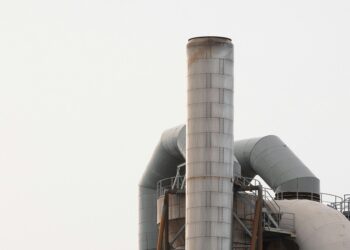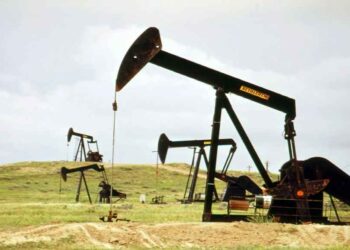In January 2007 Marathon Oil received final approval from the Louisiana Department of Environmental Quality (LDEQ) for a $3.2bn, 180,000bpd expansion of the Garyville refinery, which is known as the Garyville Major Expansion (GME) project).
Completed in 2009 the GME project provides an increase of 7.5 million gallons of transportation fuel a day for the US domestic market. The refinery can now produce 19.5 million gallons of fuel per day.
Conceptual studies for the project started in 2004, and the project moved into the front-end engineering and design (FEED) phase in 2006. The approval process for the refinery expansion began in March 2006 when the initial design and engineering phase started. Construction commenced in March 2007, with the plant start-up in the fourth quarter of 2009.
The expansion of capacity required an additional 200 new full-time employees at the refinery and 75-80 new full-time contract employees. The Garyville refinery provides employment for 770 people and 430 contract employees.
“The GME project provides an increase of 7.5 million gallons of transportation fuel a day for the US market.”
During the construction process there were between 2,000 and 4,000 construction workers on the site at any one time, which generated around $40m-50m in sales taxes for the Parish of St John the Baptist where the refinery is based.
The Ashland refinery in Garyville first began operations in 1976 and is the most-recently constructed refinery in the US. The refinery receives heavy sour crude via the river and the Louisiana Offshore Oil Port (LOOP) on the Gulf of Mexico.
The original refinery’s major process units include crude fractionation, catalytic cracking, hydrotreating, reforming, alkylation, sulphur recovery, and coking.
The Garyville facility produces: petrol, diesel, kerosene, jet fuel, asphalt, lube base oil, slack wax, propane, toluene, xylene, aromatic extract, petroleum pitch, sulphur, propane, propylene, isobutane, asphalt, coke and heavy oil.
Ashland Refinery development
The aim of the expansion project was to increase capacity at the refinery to fulfil US demand for fuel and other petroleum products is increasing. The Garyville refinery can process up to 245,000 barrels of crude oil a day and the expansion increased its capacity to 436,000 barrels a day, making it the fourth-largest refinery in the US.
Marathon’s total refining capacity was raised to 1,154,000bpd (a seven-refinery system) from 974,000bpd. Marathon stated that it was essentially building a new refinery next door to the original one although offsites and utilities had to be expanded as well.
The original refinery did not stop operating during the expansion, which formed an important part of the Louisiana economy (the State provides over 25% of the total US fuel supply). Louisiana is a strategic location with many miles of network and pipelines and multiple transportation systems that carry crude oil to the refinery and the finished product to the US market for the southern states.
In addition to the installation of a new crude and vacuum distillation unit, expansion plans call for the construction of infrastructure and other process units with the following design capacities: a new 180,000bpd crude and vacuum distillation unit, a 44,000bpd delayed coker, a 70,000bpd heavy gas oil hydrocracker, a 65,000bpd continuous catalytic regenerative (CCR) platformer unit (reformer), a 40,000bpd naphtha hydrotreater and a 47,000bpd kerosene hydrotreater.
“The Ashland expansion raises Marathon’s total refining capacity to 1,154,000bpd.”
The Ashland refinery expansion also includes the installation of additional sulphur recovery / processing capacity including two 225t per day sulphur units, a 9,550bpd saturated gas unit and related infrastructure. These new facilities incorporated the latest safety and environmental control technologies. Ashland is the first and only refinery to be included in the US EPA’s elite National Environmental Performance Track (NEPT). The NEPT programme was designed to recognise and encourage top environmental performers in the US.
Marathon’s Garyville refinery was also one of the first refineries to achieve OSHA’s Voluntary Protection Program (VPP) Star designation and be accepted into the EPA’s National Waste Minimization Partnership Program.
The refinery has also been accepted into the EPA’s Voluntary Early Reduction Program for Air Toxics under the Clean Air Act amendments of 1990. Garyville is the only US refinery enrolled into the programme.
Refinery construction
Fluor was awarded the FEED contract for the expansion. Fluor Corporation of Irving, Texas (Fluor Energy & Chemicals Group) was hired as the project management firm for the expansion in a contract worth $1.8bn.
Other companies involved in the project include Chicago Bridge & Iron Company of the Woodlands, Texas for tank construction, and Baton Rouge-based Shaw Stone & Webster. These three companies provided engineering and procurement services for the project.
Performance Contractors and Turner Industries provided steel erection and mechanical work, Industrial Specialty Contractors and Excel Contractors electrical and instrumentation work, and Cajun Constructors and James Construction Group site work, pile driving and concrete foundations.
Additional contractors
“Marathon began construction in mid-2007 and start-up took place in the fourth quarter of 2009.”
Dresser-Rand Group undertook a $62m contract to supply compression equipment for the expansion. The order was placed in October 2006 for critical compression equipment, including six DATUM turbo-compressor trains and eight reciprocating compressor units and their drivers.
Additionally, the installation, commissioning and start-up services brought the total contract to $68m. The equipment is used to increase production of ultra-clean fuels, including petrol and distillate.
Flowserve Corporation also received a $49m order for 400 pumps, seals and a hydraulic decoking system for the expansion.
Flowserve is the primary supplier for pump products for the project, and every pump includes one or more Flowserve mechanical seals. The Flowserve pumps are all built in accordance with American Petroleum Institute (API-610) standards.

















































